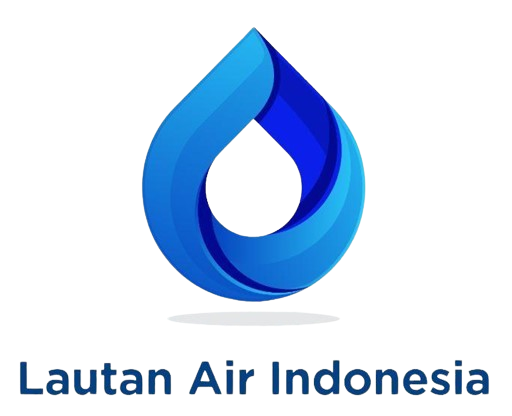Boiler blowdown is the process of removing water from a boiler to control the concentration of dissolved solids formed due to water evaporation. Although blowdown is very important to prevent scale buildup and corrosion in the boiler system, excessive blowdown actually causes waste of energy, water, and chemicals. This has a direct impact on higher operational costs and lower efficiency.
In many cases, industrial companies have difficulty in managing boiler blowdown optimally. If it is done too often, the water and energy that has been heated will be wasted.
Conversely, if it is too rare, the risk of scale formation and corrosion increases, which can cause damage to equipment and increase maintenance costs.
Negative Impacts of Uncontrolled Boiler Blowdown
Without proper management, boiler blowdown can have a number of negative impacts on the company’s operational efficiency, including:
1. Energy Waste
Every time a blowdown is performed, hot water containing energy in the form of steam and sensible heat is also wasted. The more often the blowdown is performed, the greater the energy lost.
2. Increased Water Consumption
New water must be continuously added to the system to replace the water lost during blowdown. This increases the cost of raw water treatment as well as the use of chemicals to condition the recharge water.
3. Increased Operating Costs
Excessive blowdown increases the need for water treatment chemicals as well as the consumption of fuel to heat the new water. As a result, operating costs increase without adding value to production.
4. Environmental Impact
Blowdown water discharged into the environment can contain hazardous chemicals, increasing the burden of waste treatment and potentially negative impacts on the surrounding environment.
Read Also: Scaling on RO Membranes: Causes and Prevention Methods
Strategies to Efficiently Reduce Boiler Blowdown
To reduce boiler blowdown without sacrificing system performance, companies need to implement the following strategies:
1. Using Better Quality Boiler Feed Water
One of the main causes of blowdown is the high dissolved solids content in boiler feed water. By using the right water treatment system, such as:
- Reverse Osmosis (RO): Removes minerals and dissolved substances that cause scale and corrosion.
- Demineralization or Ion Exchange: Reduces scale-causing ions such as calcium and magnesium.
- Multi-Stage Filtration: Removes suspended particles and organic matter that can interfere with boiler efficiency.
By improving the quality of boiler feed water, the total amount of dissolved solids entering the boiler can be reduced, thus minimizing the need for blowdown.
2. Using the Right Water Conditioning Chemicals
Lautan Air Indonesia provides a variety of water conditioning chemicals that can help control scale formation and corrosion in boilers, such as:
- Anti-Scalant: Prevents scale formation due to mineral deposits.
- Oxygen Scavenger: Removes dissolved oxygen that can cause corrosion.
- pH Adjuster: Maintains the pH balance of boiler water to prevent corrosion and increase operational efficiency.
With the use of the right chemicals, the need for blowdown can be reduced because the system becomes more stable and does not require excessive water discharge.
Read Also: Scaling and Corrosion in Boilers: A Hidden Threat to Face
3. Optimizing the Blowdown Control and Monitoring System
Modern technology allows for more accurate monitoring of dissolved solids levels in the boiler. By using automated sensors and IoT-based control systems, companies can:
- Regulate blowdown based on real-time data, not a fixed schedule.
- Reduce the frequency of blowdown without increasing the risk of scale or corrosion.
- Save water and fuel significantly by maintaining solids levels at optimal levels.
4. Utilizing the Heat Recovery System
Unavoidable blowdown can still be utilized efficiently with the Blowdown Heat Recovery system. This system allows the use of heat from blowdown water to heat boiler feed water, thus:
- Reducing the need for fuel for reheating.
- Increasing overall energy efficiency.
- Reducing the environmental impact of hot water disposal.
5. Boiler Optimization and Consulting Services from Lautan Air Indonesia
Reducing boiler blowdown is not just about reducing the frequency of water discharge, but also optimizing the entire boiler system to be more efficient and cost-effective. Lautan Air Indonesia offers a variety of services to help industries manage boiler blowdown effectively, including:
- Boiler Water Quality Audit: Comprehensive analysis of feedwater quality and boiler performance.
- Chemical Usage Recommendation: Selection of appropriate chemicals to improve efficiency.
- IoT Monitoring System Implementation: Use of automatic sensors to optimally control blowdown.
Conclusion
Boiler blowdown is an important part of an industrial heating system, but if not managed properly, it can waste energy, water, and chemicals.
By implementing strategies such as improving feedwater quality, using the right chemicals, optimizing blowdown control, and utilizing heat recovery, companies can significantly improve operational efficiency.
If you are looking to optimize boiler blowdown in your industrial facility, Lautan Air Indonesia is ready to help with a complete solution ranging from water treatment, chemicals, to monitoring technology. Contact us today to get the best consultation and solution for your boiler system!


